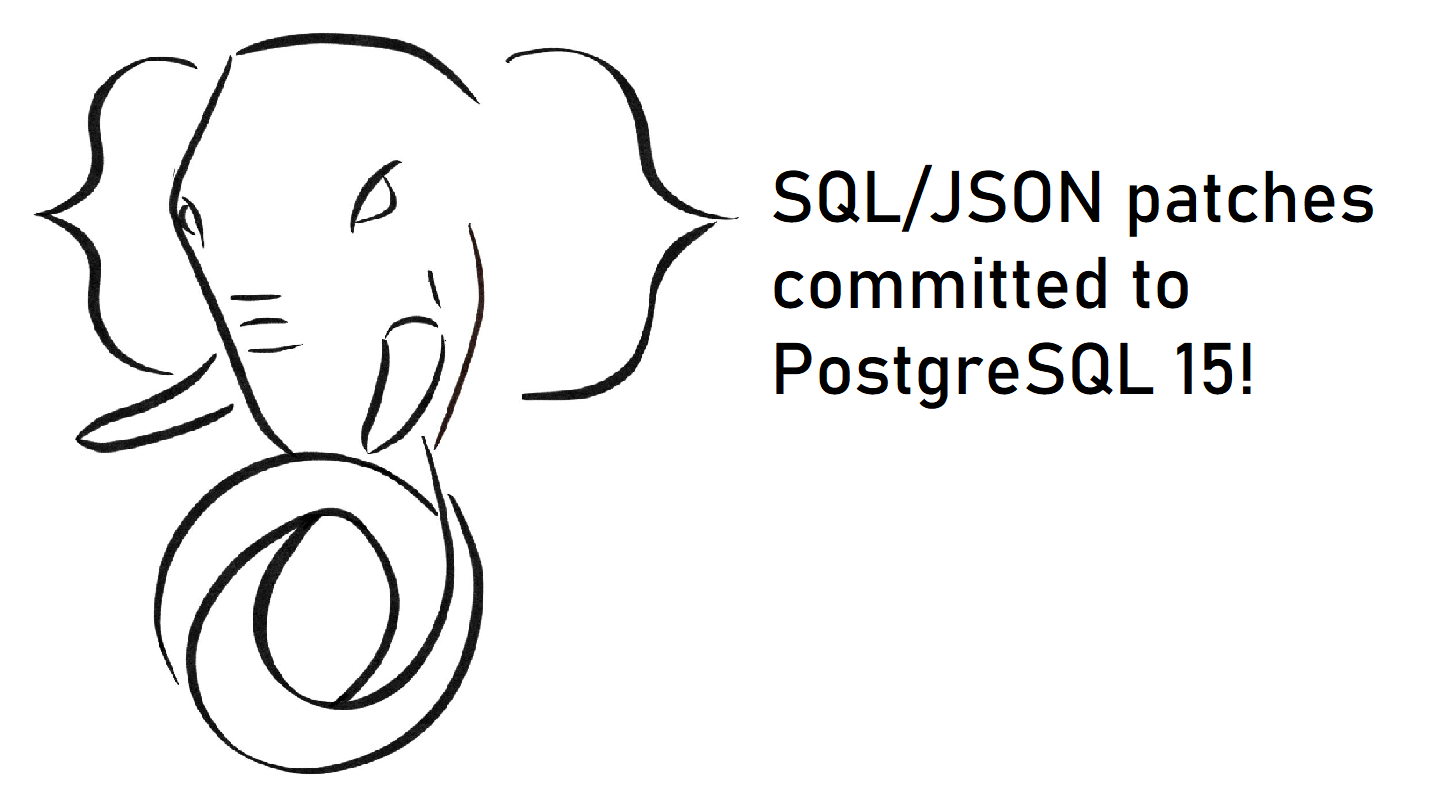Blog , p.3
So far we've discussed query execution stages, statistics, and the two basic data access methods: Sequential scan and Index scan.
The next item on the list is join methods. This article will remind you what logical join types are out there, and then discuss one of three physical join methods, the Nested loop join. Additionally, we will check out the row memoization feature introduced in PostgreSQL 14.
Joins
Joins are the primary feature of SQL, the foundation that enables its power and agility. Sets of rows (whether pulled directly from a table or formed as a result of an operation) are always joined together in pairs. There are several types of joins.
...

New TOAST in town: the “pluggable TOAST API” concept and what it means for the community
While preparing for my talk to be given at PGCon 2022, I decided to share some important thoughts with the Postgres community. We’re going to change the way TOAST works, and it will have a positive impact on lives of many PostgreSQL contributors, developers and users in the upcoming years. It is also the rare case when I tackle commercial aspects of open source development, so it’s worth reading for everyone.
In previous articles we discussed query execution stages and statistics. Last time, I started on data access methods, namely Sequential scan. Today we will cover Index Scan. This article requires a basic understanding of the index method interface. If words like "operator class" and "access method properties" don't ring a bell, check out my article on indexes from a while back for a refresher.
Plain Index Scan
Indexes return row version IDs (tuple IDs, or TIDs for short), which can be handled in one of two ways. The first one is Index scan. Most (but not all) index methods have the INDEX SCAN property and support this approach. The operation is represented in the plan with an Index Scan node
...

SQL/JSON patches committed to PostgreSQL 15!
As PostgreSQL 15 moves to the feature freeze stage, we’d like to share the news about our team’s JSONB-related patches committed to version 15. This milestone marks years of work for many people, so we will name and thank them all in this blog post.
In previous articles we discussed how the system plans a query execution and how it collects statistics to select the best plan. The following articles, starting with this one, will focus on what a plan actually is, what it consists of and how it is executed.
In this article, I will demonstrate how the planner calculates execution costs. I will also discuss access methods and how they affect these costs, and use the sequential scan method as an illustration. Lastly, I will talk about parallel execution in PostgreSQL, how it works and when to use it.
I will use several seemingly complicated math formulas later in the article. You don't have to memorize any of them to get to the bottom of how the planner works; they are merely there to show where I get my numbers from.
Pluggable storage engines
The PostgreSQL's approach to storing data on disk will not be optimal for every possible type of load. Thankfully, you have options. Delivering on its promise of extensibility, PostgreSQL 12 and higher supports custom table access methods (storage engines), although it ships only with the stock one, heap:
...
Despite the ongoing tragic events, we continue the series. In the last article we reviewed the stages of query execution. Before we move on to plan node operations (data access and join methods), let's discuss the bread and butter of the cost optimizer: statistics.
As usual, I use the demo database for all my examples. You can download it and follow along.
You will see a lot of execution plans here today. We will discuss how the plans work in more detail in later articles. For now just pay attention to the numbers that you see in the first line of each plan, next to the word rows. These are row number estimates, or cardinality.
...
This time we decided to create a blog post on constraints using one of the most popular PGConf.Online talks explaining how you can try to gain peace of mind by using constraints in PostgreSQL.
Hello! I'm kicking off another article series about the internals of PostgreSQL. This one will focus on query planning and execution mechanics.
This series will cover: query execution stages (this article), statistics, sequential and index scans, nested-loop, hash, and merge joins.
Many thanks to Alexander Meleshko for the translation of this series into English.
This article borrows from our course QPT Query Optimization (available in English soon), but focuses mostly on the internal mechanisms of query execution, leaving the optimization aspect aside. Please also note that this article series is written with PostgreSQL 14 in mind.
Simple query protocol
The fundamental purpose of the PostgreSQL client-server protocol is twofold: it sends SQL queries to the server, and it receives the entire execution result in response. The query received by the server for execution goes through several stages.
Parsing
First, the query text is parsed, so that the server understands exactly what needs to be done.
Lexer and parser. The lexer is responsible for recognizing lexemes in the query string (such as SQL keywords, string and numeric literals, etc.), and the parser makes sure that the resulting set of lexemes is grammatically valid. The parser and lexer are implemented using the standard tools Bison and Flex.
The parsed query is represented as an abstract syntax tree.
...
Postgres Professional's support team has shared a real-world case of auditing the performance of our customer's 180-TB database deployment.
Oleg Bartunov, CEO Postgres Professional and PostgreSQL Major Contributor gave a talk on JSONB performance at PGConf NYC 2021. After the presentation, EnterpriseDB’s Simon Riggs, another PostgreSQL Major Contributor proposed to create a PostgreSQL JSON workgroup (JSON Special Interest Group, JSIG). This group, consisting of several community members, will work together to enhance JSON functionality in Postgres for different use cases.
The Standard edition of Postgres Pro DBMS 14.1.1 has become available, along with new minor releases for the following versions: Std 9.6.24.1, Std 10.19.1, Std 11.14.1, Std 12.9.1 and Std 13.5.1.

PGConf.Russia Gathers 500+ IT Professionals at a Hybrid Online+Offline Event
25-26 October PGConf.Russia 2021 was held in a hybrid format to accommodate both online and offline participants. Postgres Professional organized this notable event for the 8th time; more than 500 people attended it virtually and in person. Software developers, database administrators, and top managers from the IT industry exchanged PostgreSQL best practices and shared their experience with the world’s most advanced open source database. Representatives of Intel, Yandex, EnterpriseDB, DBeaver Corp, Delivery Hero, and many other companies and organizations were speaking at PGConf.
This is a summary of Postgres Professional’s more than 6 years field experience of providing HA/DR solutions to our customers and it covers both PostgreSQL and Postgres Pro databases.
While most of our customers are making progress on their journeys to the cloud, many of the HA/DR solutions they use from the on-premises world can be used in the cloud as well.
During PostgreSQL maintenance, resource-consuming queries occur inevitably. Therefore, it's vital for every Database Engineer, DBA, or Software Developer to detect and fix them as soon as possible. In this article, we'll list various extensions and monitoring tools used to collect information about queries and display them in a human-readable way.
Then we will cover typical query writing mistakes and explain how to correct them. We will also consider cases where extended statistics are used for more accurate row count estimates. Finally, you will see an example of how PostgreSQL planner excludes redundant filter clauses during its work.
During our webinar on PostgreSQL query optimization, we found many of your questions interesting and helpful to the public, if properly answered. Get more useful links and working expert advice from Peter Petrov, our Database Engineer.

